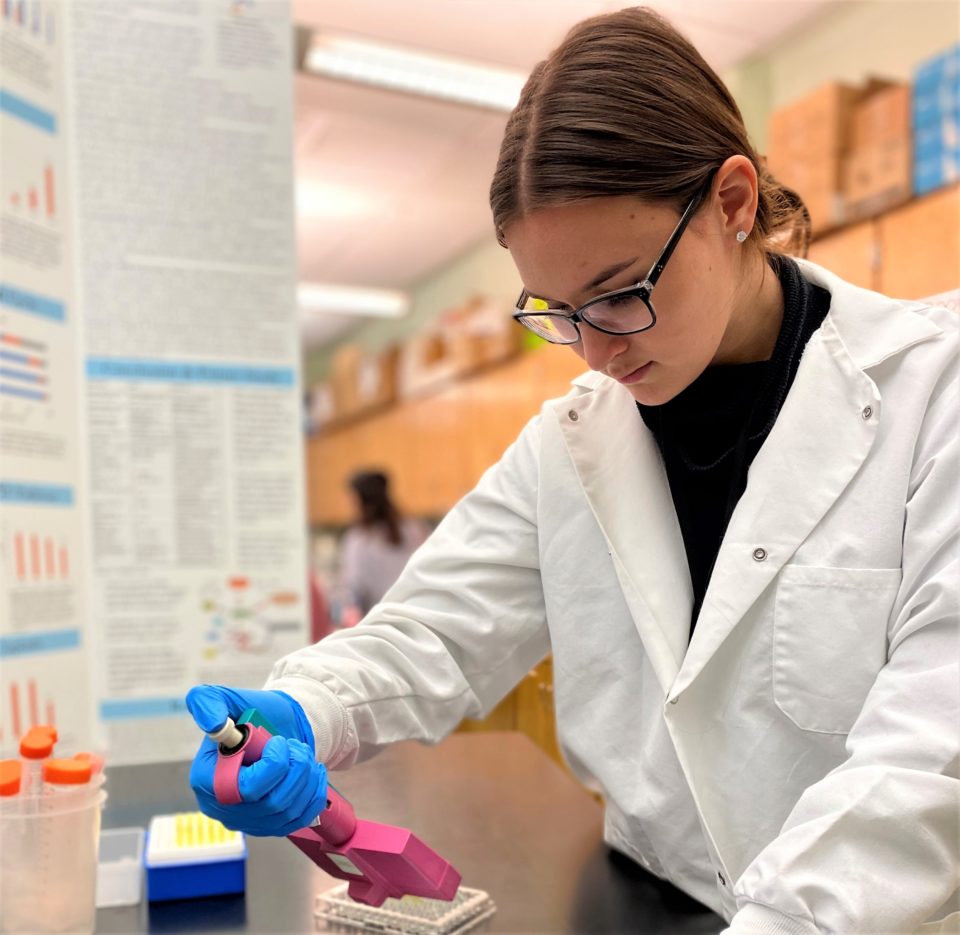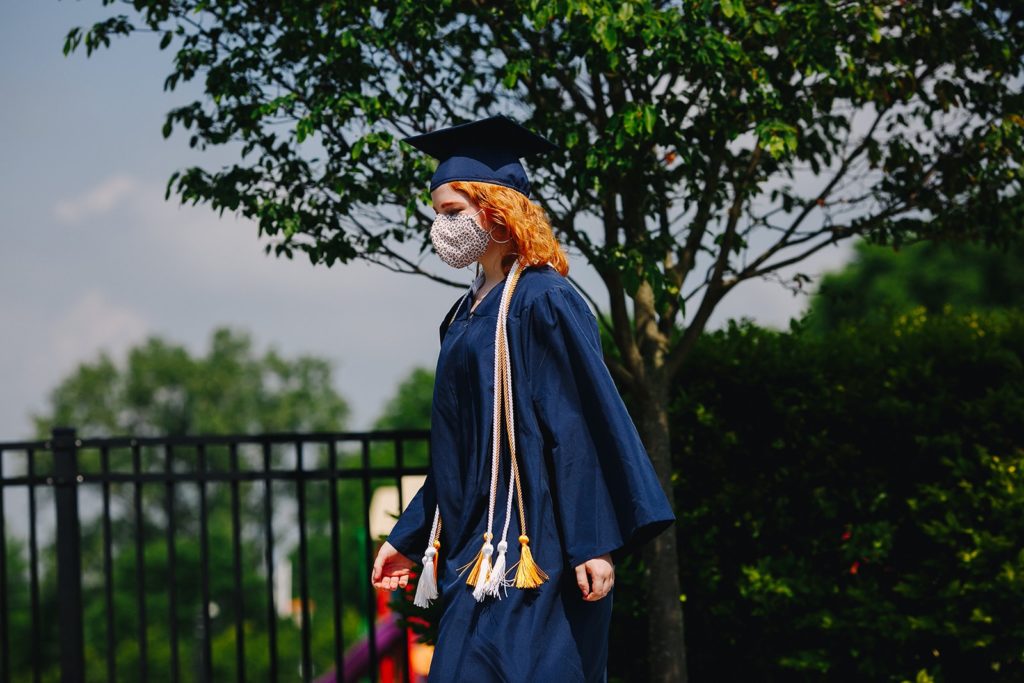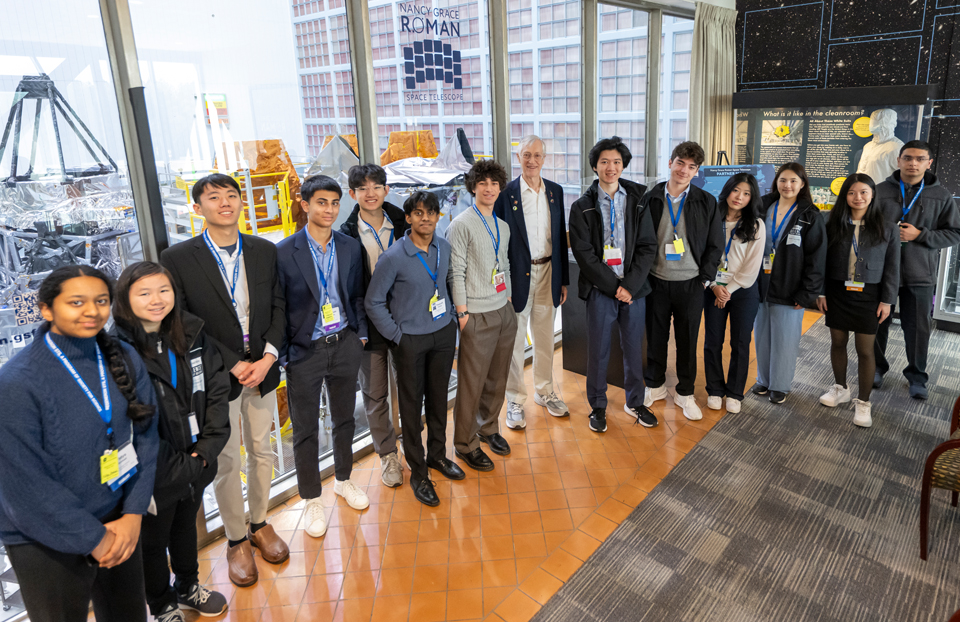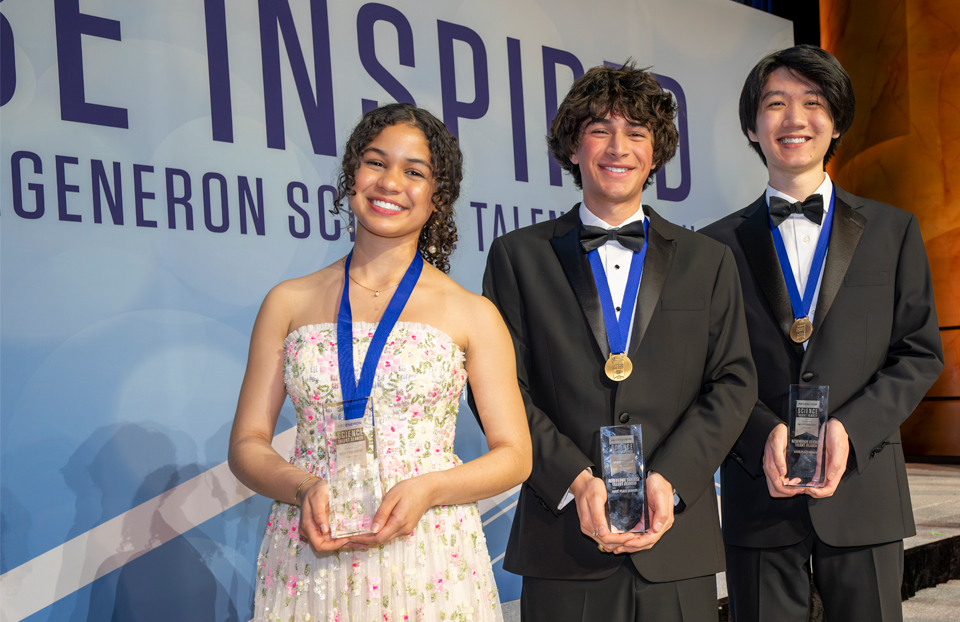Regeneron Science Talent Search 2020 finalists on facing challenges and overcoming obstacles

Get excited because this week, the Society for Science & the Public hosts the Regeneron Science Talent Search 2020 virtually! Despite stay-at-home orders deterring an in-person finals week in the nation’s capital, the Society won’t let this resilient bunch of students go unnoticed. Nine Regeneron STS finalists share some of the adversities life has required them to overcome. Whether it’s being a woman in STEM or lacking access to research opportunities or being faced with a natural disaster, these young people are tenacious and unwilling to back down from any challenge.
Andrew Brinton, 17
Merrick, New York
“The tough part about facing a catastrophe as a kid is that you don’t always know what is going on, but you still have the instinct to wonder why things happened the way that they did. I had that curiosity in 2012, when Superstorm Sandy ravaged my town and much of the Atlantic coast. Another challenge I faced was conceiving and crafting every single component of my research project independently, seeking guidance only after a concept and proposal had been made. It was a huge challenge because crafting my own research project was like a shot in the dark. Whether or not it would turn out great, I knew that the shot was necessary.”
Brendan Crotty, 17
Muskogee, Oklahoma
“One of my biggest challenges has been living in a rural area where science and academics are not valued, supported or funded sufficiently. After being turned down by countless universities, companies and labs, I decided to build my own workshop and research lab in order to continue with my work. I also work anywhere from one to three jobs throughout the year in order to have to the funds to pay for my research. These challenges have pushed me to work even harder, be more creative and to never quit even under the most difficult circumstances.”
Ankush Dhawan, 18
Newburgh, Indiana
“In my small town, research opportunities are scarce. When I wanted to perform research into water contamination, I knew that I would have to gain access to lab grade chemicals and equipment. Hence, I reached out to Dr. Seyler, a chemistry professor at the University of Southern Indiana, to gain access to the materials I needed to conduct my research. While research is not a focus at the University of Southern Indiana and the drive from my house to the institution was lengthy, Dr. Seyler welcomed me and allowed me to use his lab to conduct my research. It was this connection with Dr. Seyler that allowed me to perform research in my small town and be successful in my research endeavors.”
Ari Firester, 17
New York City, New York
“I have stuttered since I started speaking. My stutter used to make it difficult for me to communicate with other people, as I was self-conscious of my impediment. However, at science fairs, while presenting my research to judges, peers and the public, I conquered my fear of public speaking. I became more comfortable and less inhibited.”
Raina Jain
Riverside, Connecticut
“I believe that the way we treat girls begins the day they are born. We always tell women to take less risk, and we make them question their intellectual abilities. To encourage more women to get involved in STEM fields, we have to show them at an early age that they have to work as hard (not harder than) as their male counterparts. Women have as much potential to succeed as anyone else. We should show young girls examples of women role models who have succeeded in STEM fields and highlight them as relatable, so young girls know that they can reach success in science as well.”

Olivia Krivitsky, 17
Englewood Cliffs, New Jersey
“Being bullied is traumatic and may lead to self-doubt. In my freshman year of high school, I came across a bully who almost convinced me that women do not belong in science. Yet, I was lucky enough to have found a supportive community in the Diversity Alliance. This organization empowered my confidence and motivated my pursuit of science in spite of the feelings of doubt that the bully tried to instill in me. I am a better person today for having been a member of the Diversity Alliance and have been able to inspire others to pursue their dreams.”
Adriane Thompson, 17
Westerville, Ohio
“I have always felt shy and self-conscious about public speaking. During activities such as science fairs, I would have trouble translating my passion into words, and would often feel a lack of confidence to speak with enthusiasm. However, by tutoring students, teaching scientific concepts to the public through volunteering at my local science museum and challenging myself to go out and speak about my research, I have been able to become much more comfortable with sharing my research and excitement for science with those around me.”
Rohan Wagh, 17
Portland, Oregon
“One big obstacle that I had to overcome is how to face failure. In my sophomore year of high school, many of my extracurricular activities did not go well. I placed last in my state for robotics, dropped a division in racquetball and failed to qualify for ISEF. Considering I was able to compete at ISEF and Robotics World Championships in freshman year, it was hard to overcome the setbacks. But I learned that it was the pursuit of those opportunities that allowed me to continue my passions and research without second-guessing myself.”
Yi Xie, 18
Flushing, New York
“When I was 14-years-old, my parents were compelled to flee to America to seek refuge after being politically persecuted. I wasn’t able to attend school for almost one year. Over the summer of 2016, my parents and I learned that I could have an equal opportunity to pursue an education here in NYC. I took advantage of the Specialized High School Admission Test and was admitted to the Bronx High School of Science that summer. As someone who didn’t know much about the language, cultures and communities in the states, I kept stepping out of my comfort zone. Continuing higher education in New York, I learned that merely embracing and pursuing any possibility can lead to epoch-making breakthroughs. I learned that I also have the potential to be the hero I’ve been dreaming about for so long: a scientist.”
See quarantine hobbies and creative outlets 9 STS finalists are engaging in here. Learn more about their original research projects here, and sign up to meet them this Saturday, July 25!


